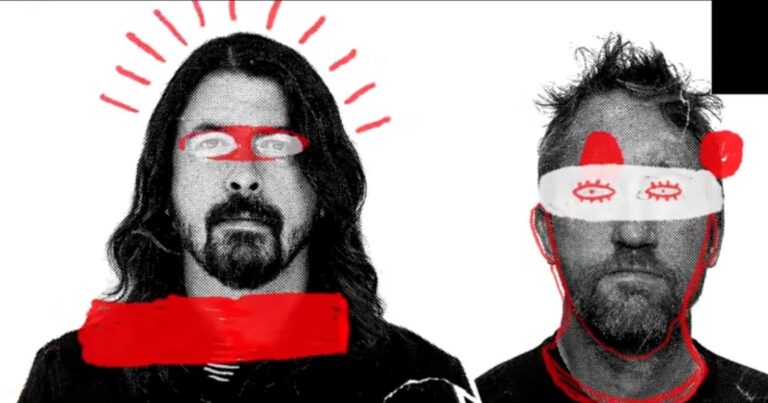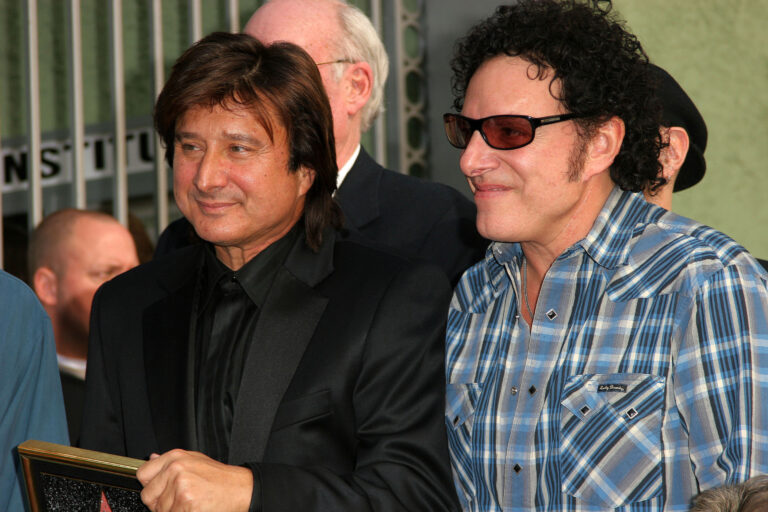
Black Rebel Motorcycle Club Issue Cease & Desist to US Homeland Security

Black Rebel Motorcycle Club, an influential indie rock band hailing from the San Francisco Bay Area, has recently made headlines by issuing a cease-and-desist order against the U.S. Department of Homeland Security (DHS). The controversy centers around the unauthorized use of the band's version of “God's Gonna Cut You Down,” a traditional American folk song that the band released last year. The track was featured in a DHS social media recruitment video, which garnered significant attention due to the department's choice to juxtapose biblical references with the band's song, raising questions about the separation of church and state per the U.S. Constitution.
The band's response was swift and unequivocal, communicated through a public statement shared on their social media platforms. Black Rebel Motorcycle Club accused DHS of disregarding copyright laws and artists' rights, drawing parallels with other constitutional violations such as the erosion of habeas corpus and due process rights. In their social media post, the band demanded that the department immediately remove the video, and they concluded their message with a pointed and uncharacteristic rebuke, “Oh, and go f… yourselves.” This explicit opposition highlights the deep divide between the artistic community and certain governmental approaches, portraying a broader cultural tension.
The cease-and-desist notice resonated with the band's fan base, receiving mixed reactions. Some fans criticized the band's political activism, suggesting that it detracted from their music. However, others celebrated their stance, emphasizing that Black Rebel Motorcycle Club has historically been politically charged since their inception, with their music often reflecting broader societal themes. The situation underscores the ongoing relevance of art and music as a platform for political discourse and the band's commitment to defending their creative rights and integrity.
This incident is not an isolated case for Black Rebel Motorcycle Club, as the band has previously negotiated authorized placements for their version of “God's Gonna Cut You Down.” In May 2024, they celebrated having their song featured in a Netflix series premiere, “Man in Full.” The band expressed gratitude for the historical lineage of the song, acknowledging previous artists like Johnny Cash and Odetta, who recorded versions of the song before them. This careful curation of their music's context and narrative showcases their respect for artistic heritage and control over their art's public associations.
Despite the controversy, the band is keeping their momentum by embarking on a series of European and UK tours in celebration of their album “Howl”‘s 20th anniversary. The tour will take them from Copenhagen to various cities such as Glasgow, Manchester, Leeds, Nottingham, and finally London. This celebration of their past work amid the current legal battle draws a marked contrast between the band's artistic contribution and their political engagement, illustrating the complexity of their public persona.
The discontent from the band's fan base indicates a broader dissatisfaction with governmental actions perceived as overreach or misuse of cultural products. It brings to light the broader cultural debate about the use of art in public narratives, particularly when used to convey messages divergent from those intended by the creators. Black Rebel Motorcycle Club's vocal stance against DHS exemplifies the enduring role of musicians as commentators and critics within the public sphere, often fighting for their creative rights and the integrity of their work. As the situation develops, it further enamors the public into a discussion about the intersection of art, politics, and institutional power.
Key Takeaways
-
metalplanetmusic.com | Black Rebel Motorcycle Club issued a cease-and-desist to the US Department of Homeland Security for using their song 'God’s Gonna Cut You Down' in a recruitment video without permission.
-
metalplanetmusic.com | Despite the band's cease-and-desist notice, the Homeland Security post with the video remained active on their social channels.
-
parade.com | BRMC expressed discontent with the improper use of their recording in what they referred to as a “propaganda video.”
-
loudwire.com | Fans reacted differently to BRMC’s political expressions on social media; some felt disillusioned while others applauded their stance.
TOP STORIES
RELATED ARTISTS
Related Stories
Steve Perry teases Journey Reunion in 2026
Steve Perry remains one of the most iconic voices in rock history and his legacy is inseparable from Journey’s most successful era. Nearly three decades.









